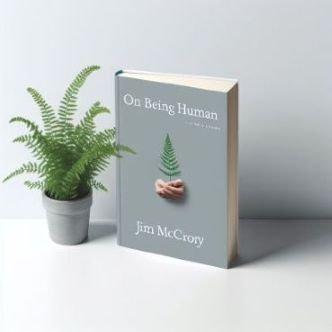
Empathy: The Lost Language of Connection
Empathy is the ability to feel with another person—not simply to feel for them, which is sympathy, but to enter their world, to stand in their shoes, however briefly, and see life from behind their eyes. It is the quiet miracle of one human heart recognizing another. The word stems from the Greek empatheia, meaning “in feeling,” yet no single culture owns its full expression. In fact, some languages carry richer nuances that reveal empathy’s deeper layers.
In Japanese, the word “omoiyari” conveys a form of empathy that is anticipatory—it means sensing and responding to the unspoken needs of others, especially before those needs are voiced. In the African philosophy of Ubuntu, we find the phrase: “I am because we are.” It suggests our humanity is shared and incomplete without others. The Danish concept of “hjertemøde”, a “meeting of hearts,” implies a silent understanding, a wordless connection. And in Portuguese, “saudade”—a bittersweet longing—often arises from deep bonds, echoing the ache we feel when we miss someone so profoundly that we momentarily inhabit their absence.
Yet in today’s world, empathy is increasingly absent. Despite the illusion of connection via digital media, many suffer in silence, drowned out by noise or passed over in the blur of busyness. Society rewards speed, success, and self-promotion, leaving little room for the slow, sacred act of listening. In such a climate, vulnerability becomes risky. People hold their grief in, suppress their fears, and smile through sorrow. As novelist George Eliot wrote, “What do we live for, if not to make life less difficult for each other?” But this wisdom is too often forgotten.
Empathy cannot be downloaded or manufactured. It must be practiced, cultivated, chosen—especially when inconvenient. We must resist the instinct to judge, to fix, or to rush in with platitudes. Sometimes, the most human thing we can do is simply be there. As Harper Lee wrote in To Kill a Mockingbird, “You never really understand a person until you consider things from his point of view... until you climb into his skin and walk around in it.”
What can we do?
We can pause. We can ask, “How are you—really?” and mean it. We can notice the quiet ones. We can create space for stories to be shared without shame. We can teach our children emotional literacy—how to name feelings and respond to others with kindness. We can choose not to scroll past pain but to hold it gently.
Empathy is not weakness. It is strength under control. It is the soul’s muscle memory, remembering what it is to be human. And in a world aching with loneliness, perhaps the most radical act of love is to say, “I see you. You are not alone.”
Image generated with the assistance of Microsoft Copilot